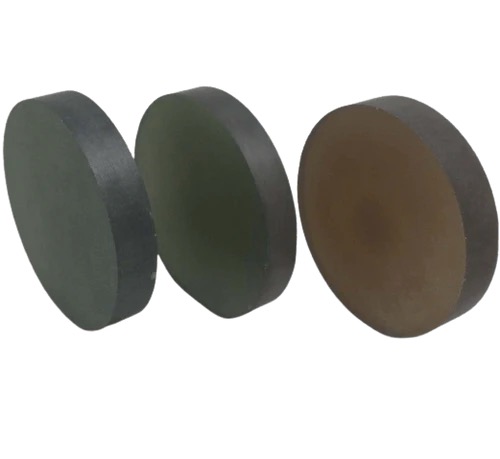Silicon Carbide (SiC) Ingot 8-Inch N-Type Production & Dummy Grade: Challenges, Applications, and Market Impact
Introduction
Silicon Carbide (SiC) ingots are the backbone of next-generation power semiconductors, enabling devices with higher efficiency, thermal resilience, and voltage tolerance. The shift to 8-inch N-Type SiC ingots marks a pivotal advancement in scaling production and reducing costs, while Dummy Grade SiC plays a critical role in process optimization and equipment calibration. This article explores the technical hurdles, production workflows, and market applications of these materials, shedding light on their role in the evolving semiconductor landscape.
Key Challenges in 8-Inch N-Type SiC Ingot Production
Crystal Growth Complexity
High-Temperature Requirements: SiC ingots are grown via physical vapor transport (PVT) at temperatures exceeding 2,200°C, demanding precise control to minimize defects like micropipes and dislocations.
N-Type Doping Uniformity: Nitrogen doping for N-Type conductivity requires uniform distribution across larger 8-inch diameters, challenging traditional doping techniques.
Defect Management
Micropipes and Basal Plane Dislocations (BPDs): Larger ingots amplify defect propagation risks, reducing usable wafer yield. Advanced seed crystal designs and growth algorithms are critical.
Stress and Cracking: Thermal gradients in 8-inch ingots increase internal stress, requiring optimized cooling protocols.
Scaling Costs
Transitioning from 6-inch to 8-inch ingots demands costly upgrades to furnaces, slicing tools, and quality control systems.
Production Workflow for 8-Inch N-Type SiC Ingots
Seed Crystal Preparation
High-purity SiC seed crystals are polished and coated to initiate epitaxial growth.
PVT Growth Process
Silicon and carbon sources sublimate in a graphite crucible at 2,200–2,400°C, depositing on the seed crystal under controlled pressure.
Doping with Nitrogen
Nitrogen gas is introduced to achieve N-Type conductivity (carrier density: 1e18–1e19 cm⁻³), requiring precise flow control for uniform doping.
Ingot Slicing and Polishing
Diamond wire saws slice the ingot into wafers, followed by chemo-mechanical polishing (CMP) to achieve sub-nanometer surface roughness.
Defect Inspection
X-ray topography and photoluminescence mapping identify and classify defects for yield optimization.
Role of Dummy Grade SiC in Manufacturing
Process Calibration
Dummy Grade ingots (non-product grade) are used to test and calibrate equipment like epitaxial reactors and lithography tools, reducing wear on high-cost production-grade materials.
Cost Reduction
Lower-quality ingots minimize waste during R&D and pilot production phases.
Training and Prototyping
Enable engineers to refine processes like wafer slicing and doping without risking premium materials.
Applications of 8-Inch N-Type SiC
Electric Vehicles (EVs):
Power modules for inverters and onboard chargers, improving range and charging speed.
Renewable Energy:
High-voltage SiC MOSFETs in solar inverters and wind turbine converters.
5G and RF Devices:
N-Type substrates for high-frequency GaN-on-SiC amplifiers in telecom infrastructure.
Industrial Motors:
Efficient motor drives for factories and HVAC systems.
Market Trends and Innovations
Cost Reduction Roadmaps
Companies like Wolfspeed and ROHM aim to reduce 8-inch wafer costs by 40% by 2027 through improved yield and automation.
Government Investments
The U.S. CHIPS Act and EU’s IPCEI initiatives fund SiC production scaling to counter China’s growing market share.
Dummy Grade Standardization
Industry consortia are defining specifications for Dummy Grade SiC to streamline equipment testing.
Conclusion
The production of 8-inch N-Type SiC ingots represents a leap forward in power semiconductor manufacturing, offering scalability and efficiency for industries like EVs and renewables. Meanwhile, Dummy Grade SiC ensures cost-effective process optimization, bridging the gap between R&D and mass production. As technology matures and defects are mitigated, these innovations will solidify SiC’s dominance in high-power, high-frequency applications.


